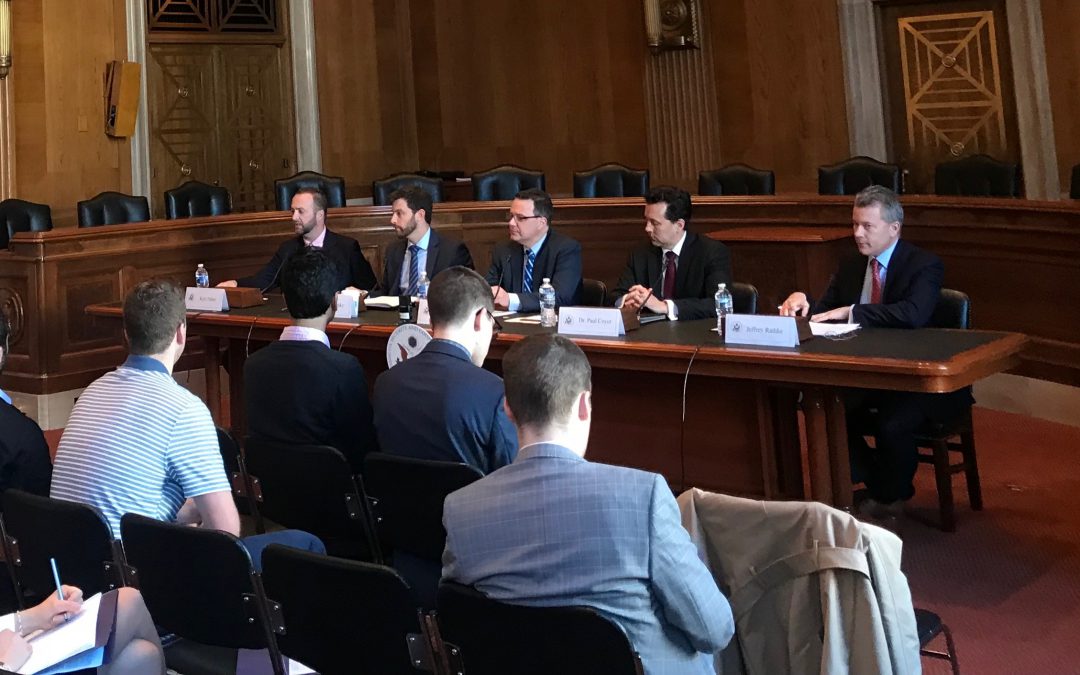WASHINGTON — Members of the U.S. Helsinki Commission on Thursday disagreed over the effectiveness of the European Union on addressing the rise of nationalist parties in Europe nationalism and increased Russian aggression in Europe.
A strong U.S. and European partnership is crucial to face challenges from Russia, China, North Korea, Iran and international terrorism, according to.Jeffrey Rathke, president of the American Institute for Contemporary German Studies at Johns Hopkins University.
“U.S. success in meeting any of those challenges will be enhanced greatly by partnership with Europe,” Rathke said.
But Ted Bromund, a senior research fellow in Anglo-American relations at the conservative Heritage Foundation’s Margaret Thatcher Center for Freedom, echoed President Donald Trump’s sentiments that the EU is a “foe on trade” and said it is not helpful in furthering the U.S. post-World War II strategy in Europe.
“The EU is an open and declared enemy to the role the U.S. assumed in Europe after 1945,” Bromund said.
Rathke disagreed: “To portray the European Union as a foe is frankly absurd.”
Bromund said nationalism is a dirty world in Europe because of Nazism, but nationalism is essential to the political order of Europe.
“Nationalism is a necessary thing,” Bromund said. “If you don’t have it or you try to repress it, it’s space will be filled with other kinds of group identities that are fundamentally incompatible with democracy.”
Paul Coyer, a research professor at the Institute of World Politics, said the U.S. should shape a healthy form of nationalism to curb the threats to European democracy.
“A healthy nationalism, in my view, is one that appreciates one’s own traditional culture while also appreciating those of other people,” Coyer said.
All panelists agreed that Russia is not blame for the rise of populism and nationalism in Europe, but nevertheless is a threat to global security.
Bromund chastised the European Union’s response to Russia’s invasion and occupation of Ukraine since 2014. He said the EU economic sanctions on Russia are weak and not deterring aggression.
“If the EU and Europeans want to play a serious security role in their own continent,” Bromund said. “The invasion of a nation needs to be met with more than a few economic sanctions.”
German Chancellor Angela Merkel’s decision this week to not seek re-election has raised concerns about who will replace one of Europe’s strongest leaders.
Although Merkel may remain chancellor for another three years, Rathke said her successor will determine how Europe deals with nationalism and Russia in the future.
“She’s weakened by the recent political developments,” Rathke said. “Whether Germany is going to play an active role will depend a lot on how this succession takes place.”

